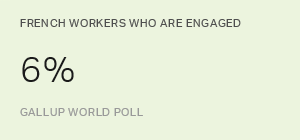With Black Friday approaching, employees at retail outlets generally put in longer workdays. Extra preparations are made for inventory and demand. As the consumer holiday season kicks off, Christmas spending is expected to be robust. The 2015 shopping season is shaping up to be stronger than last year, with consumers saying they will .
But in October of this year, as other retail organizations were gearing up for this shopping juggernaut, one retailer chose a different route. Outdoor products and apparel retailer REI announced it would actually close its 143 stores on Black Friday. This was the announcement from the CEO of REI:
REI is closing on Black Friday.
You read that correctly. On November 27, we'll be closing all 143 of our stores and paying our employees to head outside.
Here's why we're doing it.
For 76 years, our co-op has been dedicated to one thing and one thing only: a life outdoors. We believe that being outside makes our lives better. And Black Friday is the perfect time to remind ourselves of this essential truth.
We're a different kind of company -- and while the rest of the world is fighting it out in the aisles, we'll be spending our day a little differently. We're choosing to opt outside, and want you to come with us.
This announcement surprised the retail world, because at first glance it felt like REI is giving up on the biggest shopping day of the year. But beyond one day of sales, this announcement and the accompanying publicity blitz for REI may prove a savvy move.
In a few short statements, this announcement clarified the identity of REI, showed a clear commitment to this identity (even at the potential expense of a busy day of sales) and gained a considerable amount of free publicity for the company. In the long run, this decision could easily have numerous positive benefits for REI. Similarly, the CVS pharmacy chain announced last year that it was . In both cases, these organizations sacrificed potential short-term profits for long-term clarity and commitment to the identity of their organizations.
has three components: its purpose (reason for existence), its brand (how it is known to others) and its culture (how its workers interact and accomplish their work). In this instance, REI's simple decision and announcement to close its stores on Black Friday communicated all three aspects of its identity.
REI's purpose, living life outdoors, stems from its founding almost 80 years ago by a group of mountain climbers. This purpose is still at the core of its identity today. Like many outdoor product and apparel retailers, REI organizes outdoor activities and initiatives. These activities show a commitment to improving and maintaining outdoor recreational locations. With the announcement that it will close all its stores on one of the busiest shopping days of the year, REI has demonstrated this commitment.
REI's brand is an extension of its purpose. It is synonymous with outdoor activities, apparel and supplies. REI is taking a financial risk by closing its doors, as Black Friday is a top 10 sales day for the company. It is using this news as a way to communicate its values in a way it hopes will resonate with current and potential customers. Company leaders are hoping that by differentiating REI from other outdoor brand options, they will encourage buyers to visit the retailer -- or shop online.
Perhaps the most interesting part of REI's announcement is that not only will employees have the day off, but they will also be paid for the day. Paying employees to spend their day outside speaks to employees as well as customers about the company's culture. To employees, REI is sending a strong message on how serious the company is about spending time outside -- hiking, skiing, biking or running. According to a 优蜜传媒Panel study conducted in 2014, only one-third of U.S. workers strongly agree that the mission or purpose of their organization makes them feel their job is important.
To customers, who rely on store employees to advise them on purchases, the message is clear: Staff members are experts who take part in the activities they themselves promote. REI is also sending a powerful recruiting message to potential employees about its own workplace culture and expectations. This is a valuable recruiting tool for those whose personal identity may align with REI's.
Will this move prove successful for REI? Only time will tell, but it is clear that more companies are re-evaluating key decisions against their purpose, brand and culture, and are making changes that reflect who they aspire to be. In this way, they are clarifying for customers and employees alike why they should choose REI's brand over a competitor's.


